As we progress deeper into Dororo, I can’t help but think of the tune made famous by the late great Peter Tork (my favorite Monkee), who passed away just a few weeks ago. In this world there is no black or white, only shades of grey. Well, not much black and white anyway – there are poles here of course, but everything as relates directly to the story of Dororo and Hyakkimaru is obscured by clouds. I feel like little Dororo summed this up better than anyone with one helpless utterance while lying in bed – “Don’t blame me, I’ve been on my own all tis time.”
That’s the essence of this story, really. Dororo and Hyakkimaru both have been left to try and figure out not just how to stay alive in a world constantly trying to wipe out the innocent, but how to live a proper life too. Dororo obviously has taken on the teacher role because she, at least, had a few years with a mother and father who loved her and held strong beliefs, but Dororo has been alone from far too early an age. She’s had to figure out far more on her own than any child should, and while her choices have mostly been admirable (perhaps even heroic given the circumstances) the latest development with the map casts a light on just how unprepared she is to face the world. Biwamaru can offer some guidance, but the sense is that his role (as he noted himself) is mostly to be an observer.
What’s really interesting is that while these moral dilemmas were present in the source material, the anime helmsmen have decided to play them up even more. I personally find the matter of what Daigo did to Hyakkimaru pretty clear-cut – it was evil and should be punished – but now the burden of that decision has been placed on Hyakkimaru’s head. And Biwamaru is not letting him off the hook – he flat-out reminds Hyakkimaru that to get his body back is to destroy his father’s domain. This situation asks some very difficult questions both of the characters and the audience, of that there can be no doubt.
But it doesn’t end there, not by a long stretch. Take the example of Dororo’s parents, about which we now know much more than we did. Let’s be clear here – with Hibukuro dying, Ojiya chooses not to access the fortune he’s hidden for fear that she’ll use it to keep her daughter alive rather than to fund the revolution her husband dreamt of. One could argue that their commitment to ideals is admirable in its way, but she chose to effectively let her daughter die (because it’s only through a miracle that Dororo survived on her own) to stay true to those ideals.
Again, Biwamaru is not doing any hand-holding here – he makes it clear in no uncertain terms that Dororo is going to have to live with the consequences of whatever she decides to do with that money (assuming she finds it). And there’s no romanticizing the importance of money in this world – there’s no noble poverty held up as admirable. If you have money, you eat, and make sure the ones you care for eat too. And revolutions, as always and as all wars, are fought on the backs of the poor.
Meanwhile, Dororo and Kyakkimaru encounter a strange apparition – or rather two of them – in a burned out temple in the mountains, and a wraith-like female figure who plaintively begs “Please buy one”, and a grotesque giant baby who makes non-nom noises and immediately attaches itself to Dororo. These two beings don’t show up for killing intent on Hyakku-vision, and indeed he tells Dororo they aren’t youkai at all. The local lord, Sabame (Yusa Koji) eventually shows up at the ruined temple (the apparitions disappear as soon as he does) to leave a few flowers, and warns the pair that the temple is haunted and that they should spend the night at his house for safety.
It’s obvious something is off with Sabame, and the narrative really makes no attempt to hide it. The story he tells of the temple housing a nunnery where children were abused and eventually sold is surely a lie, though there are likely kernels of truth buried in it. And in the middle of the night a giant caterpillar appears in the rafters and sprouts arms before attacking Hyakkimaru, who manages to get the best of it but not kill it. Then the mother (who’s all killing intent) shows us to rescue the baby after sprinkling Dororo and Hyakkimaru with some kind of dust. She seems to be Sabame’s wife or at least she’s in league with him – and of course his notion was that the two should provide a meal for “the children”.
Sabame defends his actions (to himself) on grounds we’ve certainly heard before – he’s doing it for his people. All of the destruction-bringers in Dororo have a justification for what they do – consequentialism is alive and well in this vision of the Sengoku Period. And Dororo and Hyakkimary are caught exquisitely in the middle of all of them, all the more now that Dororo knows the truth about the markings on her back.
This is the ultimate moral dilemma Tezuka – and probably at least as much Furuhashi and Kobayashi – have laid in Dororo. As the powerful commit atrocities in the name of the greater good, these two innocents are asked to forgo the chance to better their own lives (and in Hyakkimaru’s case, simply to live it with dignity as a human being) for the sake of the world that has hurt them so badly. It’s a cruel fate, but once more I take small solace in the fact that at the very least, these two have found each other.


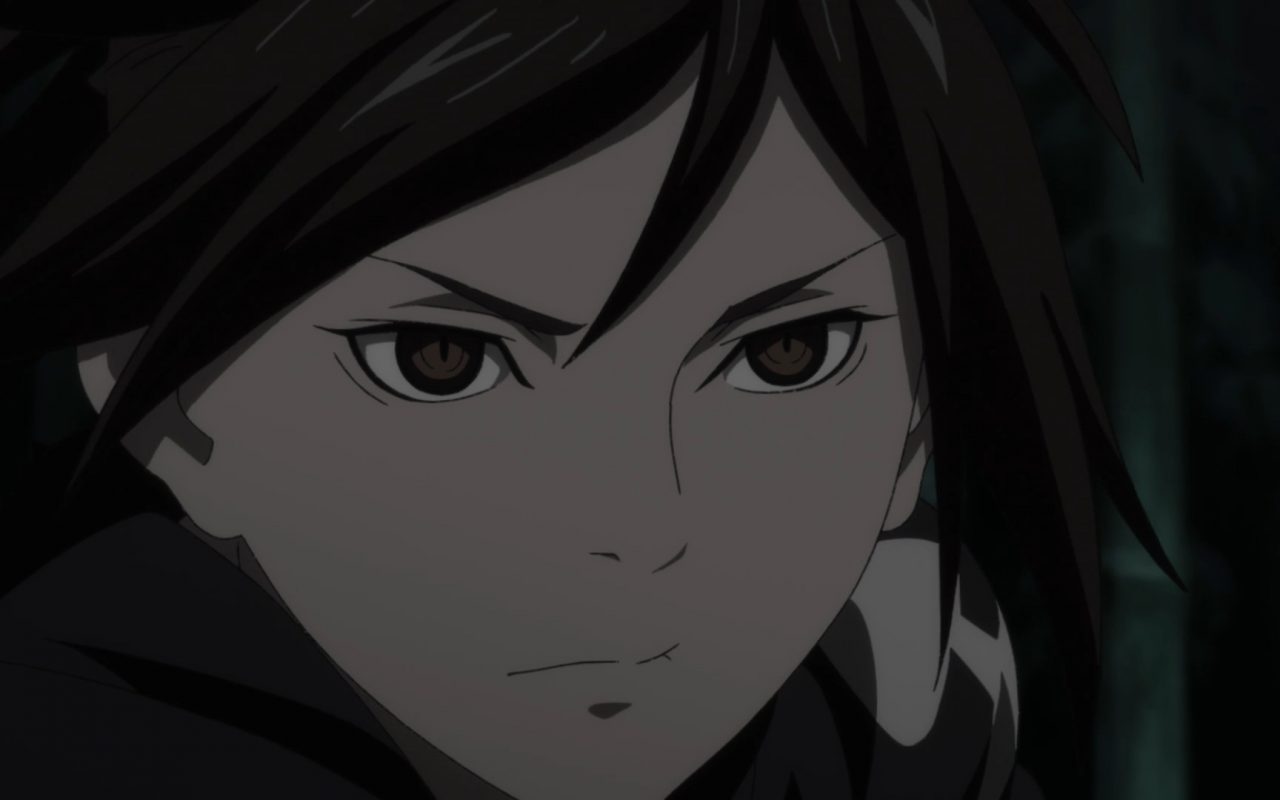
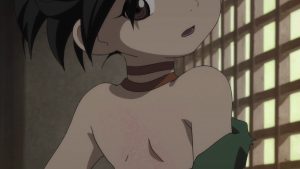
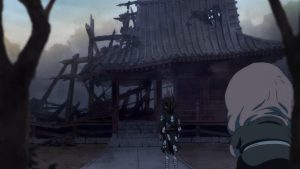
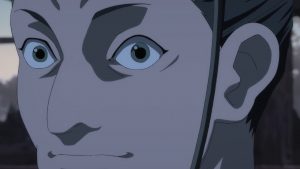
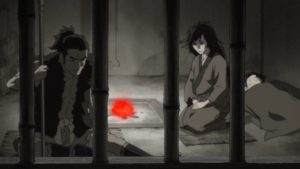
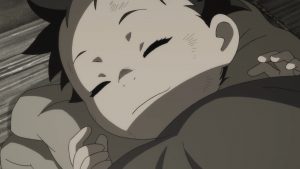
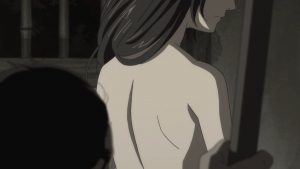
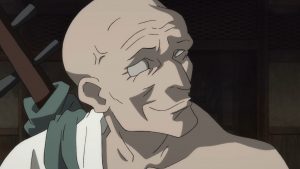
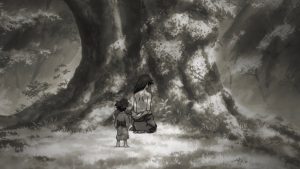
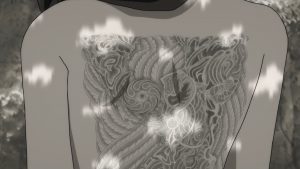
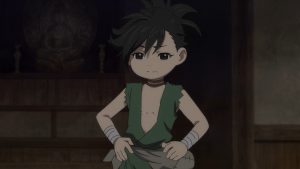
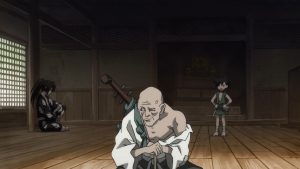
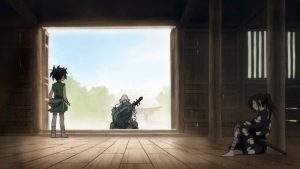
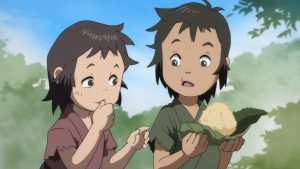
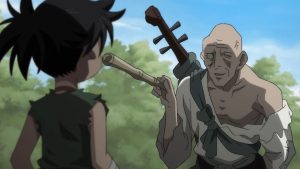
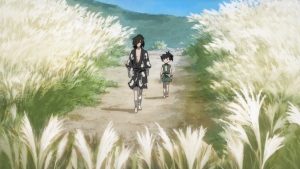
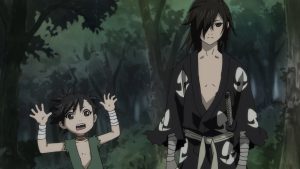
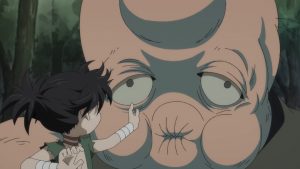
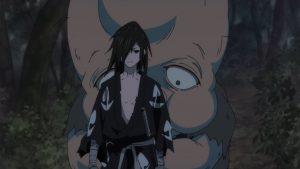
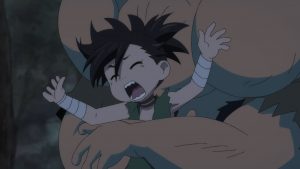
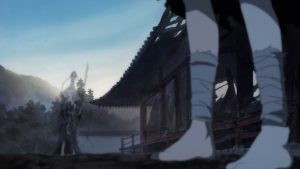
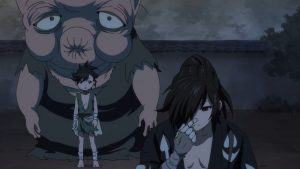
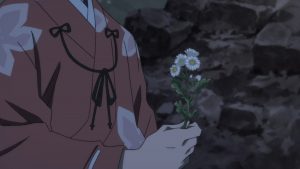
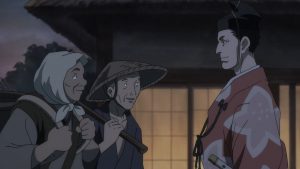
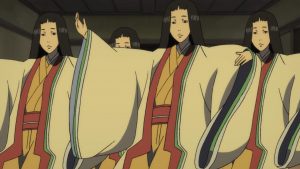
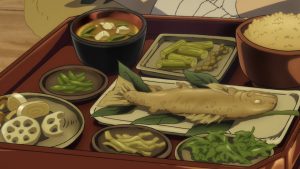
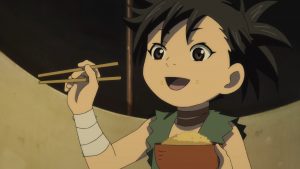
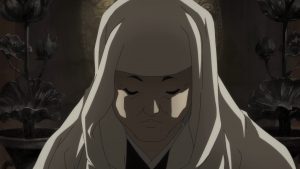
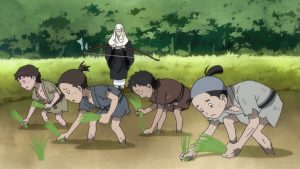
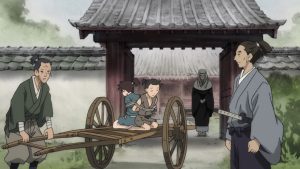
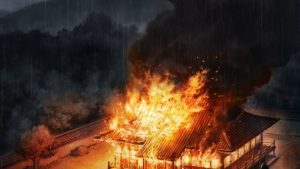
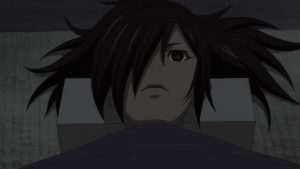
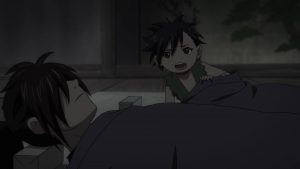
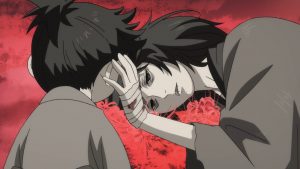
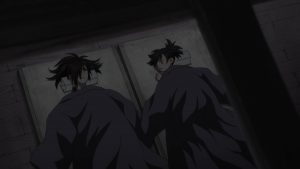
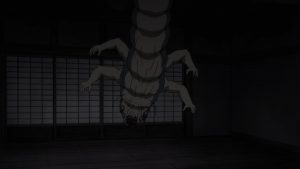
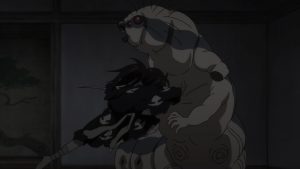
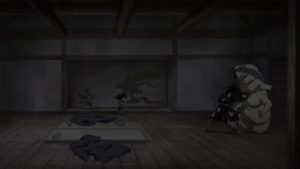
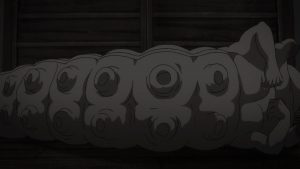
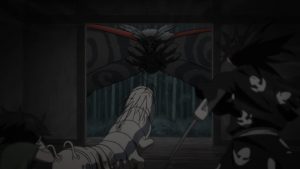
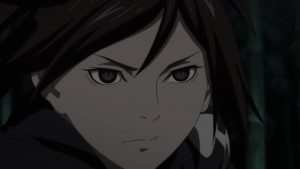

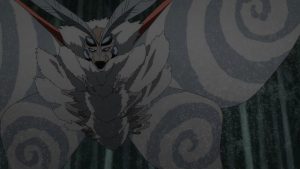
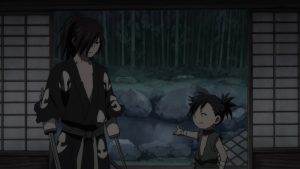
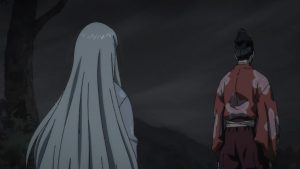
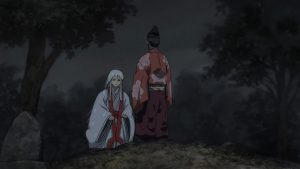
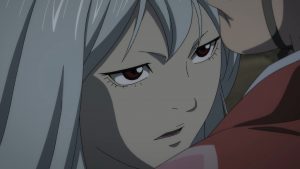
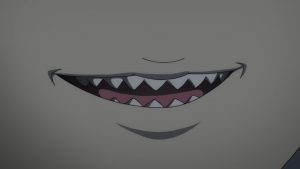
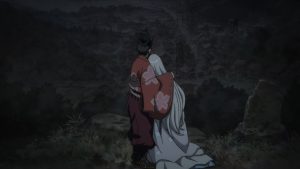
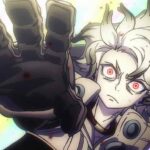
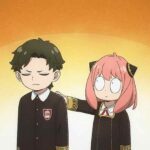
Scampi
April 17, 2019 at 1:28 amI’ve always noticed it before, but it’s very apparent this episode because of how long the baby messed around with Dororo. Her voice acting is very one dimensional in its childish side, but her sadness and frailty…feels just like a tone lowered rather than transferring emotion for me to empathize with. Well, at least makes me appreciate Mob’s VA even more.
Guardian Enzo
April 17, 2019 at 7:36 amHmm… I have to say I quite disagree here. I like the authenticity and lack of typical seiyuu polish she brings to the role. Rio Suzuki (she was 13 during most of production) comes off for me like a temperamentally upbeat child stuck in a lousy situation trying to stay cheerful against all odds.
ibtachi
April 17, 2019 at 4:59 amEvery Monday I watch this show and every Monday I’m reminded of something you said in an earlier review regarding the sound direction. Something along the lines of “the music never overtakes the visuals”. The subtle and measured way this show makes use of its soundtrack (and silence) is something that seems to be becoming more of a… not quite lost but- rarer art these days.
Guardian Enzo
April 17, 2019 at 7:32 amAgreed. But they don’t get much more old-school than Furuhashi. He needs the right fit with the material these days, but this is obviously it.